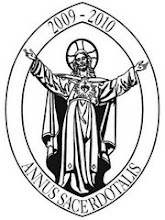A few weeks back, John Smeaton posted about the new draft Code of Conduct and Practice by the General Teaching Council, which is the professional regulatory body for teachers.Only teachers registered with the GTC can teach in state schools, and those who register must sign the declaration:
'I understand that as a registered teacher I am required to comply with the code of conduct and practice for registered teachers'
As the Christian Institute has noted, amongst other things, the Draft Code would require:
.'Registered teachers…
Act respectfully towards all children and young
people, parents, carers and colleagues, regardless
of their socio-economic background, age, gender,
sexual orientation, disability, race, religion or
beliefs…
Proactively challenge discrimination,
stereotyping, and bullying, no matter who is
the victim or the perpetrator; promote equality
and value diversity in all their professional
relationships and interactions'
The first paragraph above simply requires
teachers to treat people respectfully. This is what
Christians believe in any event. The Bible teaches
the inherent worth and dignity of every person
– regardless of their background or conduct –
because they are made in the image of God.
Christ taught that we must love everyone, even
our enemies,4 and “do good to all people”.5
But Principle 4 also requires teachers to
“promote equality and value diversity in all their
professional relationships and interactions”.
And the Christian Institute gives examples of what the promotion of equality and valuing of diversity could mean :
• A university department of education asks
all applicants for teacher training courses to
affirm their willingness to promote gay rights,
citing Principle 4.
• A Christian woman applies to teach Personal,
Social and Health Education. At interview
she is asked if she will use lesson materials
designed by gay rights groups. When she
says no she is told this breaches Principle 4.
She does not get the job. The woman takes
the school to an employment tribunal for
religious discrimination. The tribunal refers
to the code of conduct and finds in favour of
the school.
• Pupils ask a Christian RE teacher if he
believes Christ is the only way to salvation.
He says yes. An atheist parent complains to
the GTC and to the school, citing Principle 4.
• A teacher known for his Christian faith is
asked for advice by a troubled pupil. After
a conversation he tells the pupil he will
be praying for him. Another staff member
reports the teacher who is suspended pending
investigation into an alleged failure to “value
diversity”.
• An OFSTED inspector criticizes teachers of
sex education in a church school for teaching
that cohabitation and homosexual practice
are wrong, claiming it breaches the GTC’s
equality and diversity requirements.
• A Christian teacher, returning to the
profession after a career break, applies for
GTC registration. However, she cannot sign
the declaration about complying with the
code because she cannot, in good conscience,
agree with the modern definitions of
‘equality’ and ‘diversity’. She is therefore
unable to return to teaching.
• A homosexual group writes to schools
claiming that Principle 4 means all schools
must use materials designed to promote
acceptance of homosexuality
‘Equality’ and ‘diversity’ are concepts which can
be used as a tool for promoting secularism and
gay rights, as these cases demonstrate:
• When nurse Caroline Petrie offered to pray
for a patient North Somerset Primary Care
Trust suspended her. It cited the Nursing
and Midwifery Council Code that says “you
must demonstrate a personal and professional
commitment to equality and diversity.”
• Lillian Ladele, a Christian working as a
marriage registrar for Islington Council,
was disciplined for refusing to conduct
homosexual civil partnership ceremonies.
The Employment Appeal Tribunal ruled that
Islington was justified in disciplining her
because to do otherwise “would send the
wrong message to staff of the council about
its commitment to equality”.
• Brighton Council withdrew funding from
Pilgrim Homes, a Christian care home,
because it refused to question elderly
residents four times a year about their
sexual orientation.9 Brighton claimed the
home failed to comply with “fair access and
diversity” policies.
The Catholic Education Service has responded to this draft code.
Oona Stannard writes:
'My initial reaction was to welcome the protection that it should offer, for example, to any teacher in a school with a religious character or for person of religious faith, entitling them to be protected from any harassment or bullying and discrimination.'
Maybe Ms Stannard took some further advice, as, she admits:
'Subsequent reflection, however, has led me to think that my stance is too trusting and would not take into account those who would misappropriate the Code and who could abuse the use of the words in Principle 4 to discriminate, for example, against Christian teachers.'
Too trusting indeed!
Where have you been, Ms Stannard, these last few months that have seen nursing staff, a nursing home and a town hall employee fall foul of equality and diversity policies?
The most telling point that Ms Stannard raises is, I think, the following:
'Clearly in secular terms as well as in religious terms “promoting equality and value diversity” ....could not always be upheld; one has only to think of issues around the BNP to know this.'
Ah, there we have it, the draft code couldn't be upheld in respect of people that we don't agree with anyway.
I wonder why Ms Stannard selected the BNP to make this point? That, so far, it is Christian organisations and individuals who have suffered the consequences of Equality and Diversity policies, seems to have passed her by.
Daily Rome Shot 1550
9 hours ago




No comments:
Post a Comment